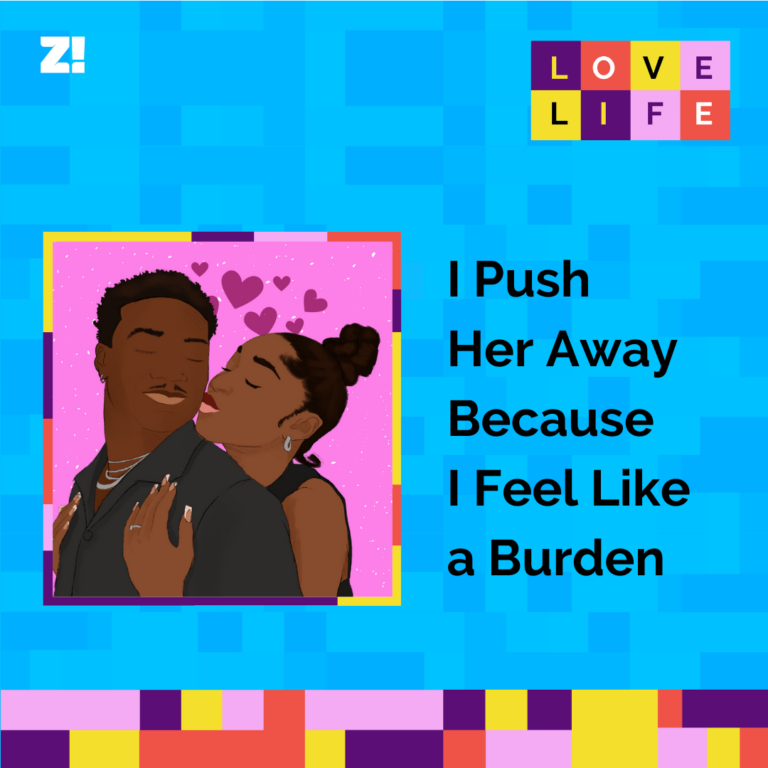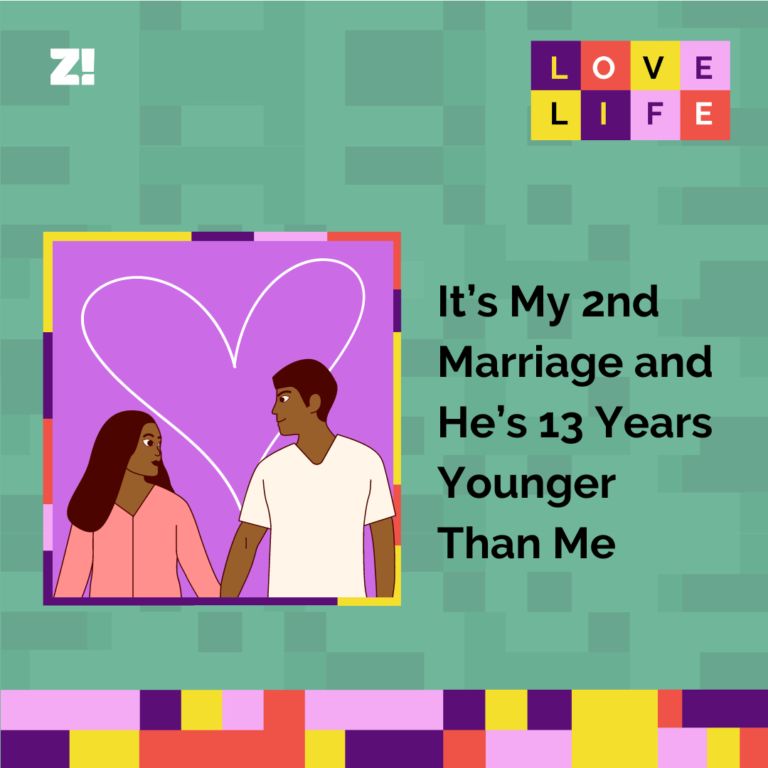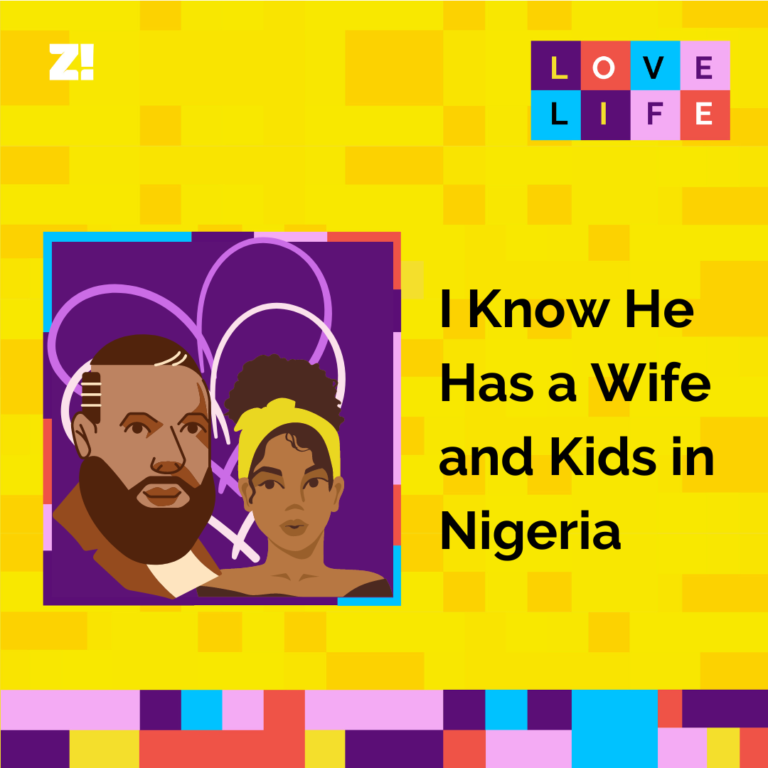Navigating life as a woman in the world today is interesting. From Nigeria to Timbuktu, it’ll amaze you how similar all our experiences are. Every Wednesday, women the world over will share their experiences on everything from sex to politics right here.
Even though Yakubu Gowon was only 31 when he became Head of State, few younger millennials (30 and under) are in political offices today. But since 2015, I’ve noticed this subject’s consistency in public service, so I reached out to her to share her journey and inspire other young people to action.
This week’s #ZikokoWhatSheSaid subject is Nafisa Atiku-Adejuwon, a 29-year-old Nigerian woman. She talks about experiencing politics in secondary school, choosing public service over a legal career and finding purpose in helping young women enter politics through “Girls Just Want to Run”.
What inspired you to get into politics?
Exclusion. It’s widespread in Nigeria. I have this memory from when I was very young: I was in a car driving by some young kids begging on the road, and I felt terrible because I had access to education, a good home, food, electricity, water, and these people didn’t. Exclusion has always been a thing for me. I’ve always hated it.
Tell me about your personal experience with exclusion
In SS 2, my Economics teacher encouraged me to run for Assistant Dormitory Prefect. I didn’t want to because one of my good friends was running for the same post. I’d even written her speech for her.
What did you do?
The teacher submitted my name anyway, so I had to enter the race. I was really bullied for it because other people in our class saw me as a betrayer. I would go to eat in the dining hall and that clique of girls would just hiss at me, so I would leave without eating.
I still won the election and became one of only six SS 2 prefects that year. Other teachers saw how responsible I was in that welfare role and nominated me for Head Girl the next year.
How did university go? More leadership roles?
The incredible irony is I didn’t really do anything in university. I’m sure if my uni classmates see me now, they’d be shocked and be like, “We didn’t know she had it in her.”
I almost can’t believe that
You know the kind of culture we have. Women aren’t exactly encouraged to be leaders. I went to university, and I was just like the average student. I went to class, had friends, went to church, and went back to my room.
When I went home during school breaks, I always had an internship or job or volunteering experience. But in school, you couldn’t distinguish me from the pack.
Why though?
I think it’s because I went from a private secondary school to a federal institution — the University of Nigeria, Nsukka. It’s a big school with plenty of people to compete with, and as I said, the dynamics weren’t exactly friendly for female leadership.
I studied law, and we set up mock chambers every year to put everything we learnt to practice. I wanted to volunteer to be a counsel or witness or something. But the guys were monopolising all the spots. They would edge out the girls and were very assertive about what they wanted. I didn’t feel like I had the energy to fight back, so I just said, “Fine. I’ll just pack my things and go and read my books”.
And nothing changed through the years?
Actually, in my fourth and final year, I got involved in more service-to-humanity-type activities. I joined the Rotary Club and became the secretary. I was a member of the legislative arm of my class that year. But in general, it was too late to make any real impact.
It comes down to the environment. Some are engineered to allow you to thrive; some actually choke your potential.
All that exclusion, what would you say it changed for you?
My whole uni experience taught me to have thicker skin and appreciate the struggle. It gave me a teaser of the real world. I spent the first few years trying to discover myself and my own place.
While I knew I could be a leader because I’d done it in secondary school, moving to university, I felt like a small fish in a very, very big pond. I couldn’t find my place in it. So a lot of existential questions flew through my mind. Like, what exactly do I want to do with my life?
I considered entrepreneurship because everyone was doing that at the time. I started curating hamper baskets, but it didn’t work out. I tried NGOs and got into some leadership roles in community service organisations. It was kind of my thing, but it was already too late to capitalise on it since I was basically graduating.
What happened after graduation?
Law school. I was at the Lagos campus, and it was a hustle. You’re in classes from morning to night just struggling to pass, to be honest. I made some friends and met a guy called Temi Vaughn. His dad was doing some youth development town hall meetings and told him to get some of his friends who were passionate about Nigeria.
I come from a very political background. Politics is a huge topic in my household, and we’re always dissecting government policies, so it wasn’t a new conversation for me. I saw the way Nigeria was going in 2015 when there was a major election. I’d started interrogating the system and consistently posting write-ups on Facebook about politics and youth empowerment.
So Temi’s dad got some of us to host his town hall meeting in collaboration with the Lagos State government. I capitalised on that until I got chosen for the Young Professionals Bootcamp, by Pastor Poju of the Covenant Christian Centre, the same year. It was the turning point of my entire life.
How?
At the boot camp, Mark Okoye, a commissioner or special adviser serving under Peter Obi’s Anambra state government, told us about his journey into public service, and how he troubled Peter over and over to give him a place in his government.
I was like, if this dude can leave the US where he schooled and had excellent grades, to do that, I could too. It was like a view into what my life could be. I went to the boot camp still wondering about my career options. Should I go the normal route of becoming a lawyer or the unpredictable path of public service?
After hearing Mark speak, I said, I have my choice, and that was it.
What did you do next?
I had a couple of job interviews already lined up, one in particular at a law firm offering some good money. I told them I didn’t want it and found my first job on Facebook at a youth organisation called Leads Nigeria. From there, I moved to She Leads Africa as a program associate.
I’m currently the program officer at the Shehu Musa Yar’Adua Foundation. We work on creating safe spaces on university campuses to protect young women from sexual violence. We also have an anonymous whistleblowing platform for survivors of sexual harassment within Nigerian tertiary institutions.
How did you get into the foundation?
In 2020, I wanted to pivot fully to the non-profit space and work on women’s issues. It made sense for my political future. I was also tired of Lagos stress and traffic and needed to move to a less stressful place for health reasons. I talked to my dad, who referred me to someone at the foundation. They called me to interview for a position in their new gender justice program. I got the job and moved to Abuja.
It’s been an interesting six to seven years in public service so far, but there’s been a lot of sacrifices.
Sacrifices?
During NYSC in Ibadan, I decided I would do a project teaching civic and political education to senior secondary students who, by the next election in 2019, would’ve been old enough to vote.
I was earning ₦18k from the federal government, and ₦3k from the ministry of justice. And I was living in a flat with roommates. I had to buy food, etc. I went to those schools, raised money to donate schoolbooks, and pay school fees, all without a proper job.
After NYSC, while I was waiting for a job, I continued the work with schools in my neighbourhood in Lagos State.
MEANWHILE: 10 Corpers Tell Us How They Spend Their NYSC Allowance
What exactly inspired the project?
Young people have always been the focus of my political work; young women are my primary focus. My book, Girls Just Want to Run, was born out of my own experience trying to be actively involved in politics.
Going into politics, I discovered that there were no other women in my age range. How do we get women in their 50s to run for office when they’ve not built up their social and political capital from when they were in their early 20s like men do?
We would only continue to pay lip service to women being involved in politics if we don’t concentrate on getting them into the political party system young. That was what made me say, “Okay, somebody has to write this message. And I don’t mind being the bearer of good news”.
How did that go?
Getting the money to launch the book was by God’s grace. I saved up, people donated, and I managed to do it well. It’s now grown into a community young women are inspired by.
Before then, through my NYSC projects, I set up an organisation for civic and political education called “NYouth Speaks” because young people aren’t very aware of their civil and political rights.
My political articles, school tours and initiatives became subsumed under NYouth Speaks. Then when I evolved into pushing for youth and women’s political participation and published my book, everything fell under “Girls Just Want to Run” but focused on young women.
What are some of the things you’re doing under this initiative?
This month [September], we’re doing a book drive, to give young women civic education books. Through that, we would form leadership clubs for girls in secondary schools. We want them to be acquainted with social change, justice, political participation from now so that even in their own way, they can bring change to their communities.
It starts with influencing the younger generation. We talk to them about the qualities to look for in a leader. We educate them about their rights, what the constitution provides for, and how to enforce or challenge the constitution. What are the gaps in our society that need to change within the next few years? We want them to start taking ownership of these things.
And what’s your personal journey into the political system been like?
It’s been a constant process of upskilling and making meaningful change by educating young women. This country needs leaders. Not everyone can leave. If I set my mind to japa, I could probably be gone by next year. But I won’t do that.
It also helps that I married somebody who’s just like me. He was at my book launch and, crazy story: I was scheduled to give a TEDx talk in Abakaliki, Ebonyi state, the day before my launch. We missed our flight coming back to Lagos because of bad roads.
So we had to take a night bus to get back in time. We met armed robbers on the road, and they shot at our bus. It was so scary, but did I look like I’d gone through that by my launch the same evening?
So sorry you had to experience that. Did your political growth happen naturally or was it something you worked towards?
A lot of intention and hard work has gone into it. While I was waiting for my NYSC placement, the boot camp came up and I thought that if I could get into the program, I would get some clarity about what steps to take next. I applied for it while I was still posting political pieces on Facebook, BellaNaija, etc.
Right
Then I was posted to Kebbi State for NYSC. I have delicate health, so at the beginning, my family said, “We have to get you reposted. We can’t risk certain things. You need to be closer to home so if anything happens, we can rush you out quickly”.
So I went to Kebbi knowing I wouldn’t stay past orientation. But I got there and changed my mind because I felt like I could do some good regarding girls’ education there. I called home to tell them, and they said, “Okay, no problem. We won’t change it”. But they didn’t listen. I was still transferred down to Ibadan.
Where your civic education journey started
Yes, I was able to do what I wanted to do in Kebbi in Ibadan, and I got chosen for another boot camp by RED Media, called the Future Project. It was a three-day boot camp on understanding how the local government works. People like Demola Olanrewaju and Lam Adesina, a member of the Oyo State House of Representatives, spoke to us.
My circle widened, and I applied for more opportunities, looking for what I could do next. I started thinking about how to join the process officially to see how it works. I joined the KOWA Party, and it proved to be instrumental because it was my firsthand experience there that birthed Girls Just Want to Run in 2018, which opened platforms for me to talk about young women’s issues, political justice and participation.
Why KOWA?
Because I felt KOWA was a youth-friendly party. Ironically, that’s where I met my husband; he was the national youth leader of KOWA Party. I needed somewhere I could volunteer my skills and add some value to the system as a young person. Also, it was easy to join. If you want people to be part of a process, you need to make it easy for them to join it.
Is it really? I’m not sure access to political parties is readily available to the average citizen
A lot of work could be done to bring more awareness to these kinds of fellowships, boot camps, training, and so on. I wouldn’t have found the information if I wasn’t intentionally looking for it.
The political system and process in our country are not straightforward; it’s not user-friendly at all. The established parties don’t make it easy for you to find or join them. Only the newer parties do a level of mobilisation.
But APC did a membership drive around last year [2021], and PDP had an online registration portal going on around the same time.
But where? Do people know about these things?
The APC one was physical in local government councils of different states. I do agree there’s not enough awareness of these systems and initiatives, but people also need to be active about their interest in finding them. Let them not shave your head in your absence.
Some parties use digital membership channels. PDP has tried to do a whole campaign by revealing their online registration portal in 2021. The link was flying across my WhatsApp like no man’s business. You could just upload your passport and details, and it would go into the members’ register.
But at the end of the day, to improve the system, we need to be part of it. And that can only happen by being intentional about it.
Fair. So how did it go at KOWA?
I was a party member for about a year. Apart from the fact that INEC deregistered the party, I left in 2019 because I wanted a more in-depth political experience. So I joined PDP in 2021, through the e-registration portal.
Beyond community development, do you see yourself actually running for political office?
I do. But not right now. I’m a new mom, I run a business and work in an office, so there’s only so much I can juggle. The next four years will be critical in gaining some much-needed experience within the political space as part of the system now, as opposed to being a community service advocate.
I need to see and understand the intricate workings of politics in Nigeria. After four years, I can then officially say I’ll take a step and run as a candidate to serve people on whatever level I think will be practical at that point in time.
And what’s one thing about your life right now that makes you happy?
One thing that really makes me happy and fulfilled is being on a journey to becoming the person I dreamed I could be. Someone who creates change. I’m happy I can sit down, look back on my life so far and see that I’ve improved a lot of people’s lives.
NEXT UP: Do We Really Need Celebrities in Nigerian Politics?
For more stories like this, check out our #WhatSheSaid and for more women like content, click here




